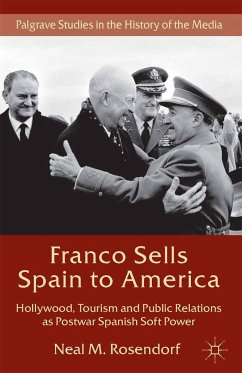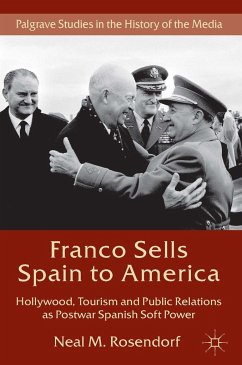
Britain and the Spanish Anti-Franco Opposition

PAYBACK Punkte
38 °P sammeln!
After fascism's defeat in 1945 Britain did not co-operate with Franco's Spanish opponents to end his dictatorship. This study demonstrates how divisions in the Spanish opposition were one factor but argues that Britain's strategic and commercial interests in Spain also acted as a disincentive. Only when international pressure for sanctions threatened Iberian stability in 1947 did the British government turn to the Spanish opposition. With the advent of the Cold War, however, the opposition became irrelevant to British needs and Franco's survival was guaranteed.














